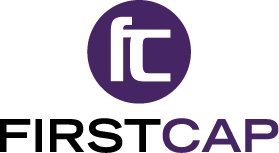What Is Debt Recovery? Your Essential Guide to Understanding the Process
Have you ever faced unpaid invoices or wondered how debts are reclaimed in a professional, ethical manner? For businesses and individuals alike, debt recovery is a crucial process to ensure financial stability. Understanding how it works and when to seek professional help can make all the difference.
Let’s break down the process of debt recovery and why it matters, highlighting practical steps and expert insights to manage unpaid debts effectively.
What Is Debt Recovery?
Debt recovery is the process of collecting overdue or outstanding amounts from individuals or businesses who owe money to a creditor. It’s more than just chasing payments—it’s a structured approach to resolving financial obligations fairly and lawfully.
For businesses, it safeguards cash flow and operational stability. For individuals, it offers manageable solutions to settle financial commitments. Whether through direct communication or legal channels, debt recovery ensures a resolution that benefits both parties.
While often used interchangeably with “debt collection,” there’s a distinction. Debt collection usually refers to initial attempts to recover payments, while debt recovery involves more formal measures, often requiring the expertise of specialised professionals.
Why Debt Recovery Matters for Businesses
Unpaid debts can severely disrupt business operations. For small and medium-sized enterprises (SMEs), late payments can affect the ability to meet payroll, pay suppliers, fulfil obligations, or invest in growth opportunities.
According to the Federation of Small Businesses (FSB), over 50% of small businesses experienced payment delays in 2022. Addressing these debts promptly is essential to maintain financial stability and ensure future growth.
Efficient debt recovery processes minimise risks, allowing businesses to focus on their core operations without being bogged down by financial uncertainties.
Key Steps in the Debt Recovery Process
Successfully recovering unpaid debts involves a systematic approach. Here are the key steps that can help ensure a smooth recovery process:
Step 1: Accurate Invoicing
Accurate and professional invoicing forms the foundation of debt recovery. Each invoice should include:
- Precise contact details of the creditor.
- An accurate description of the goods or services provided.
- The total amount due, with itemised details if applicable.
- Payment terms and due dates.
- Any relevant references for both parties.
Using professional templates not only reduces errors but also minimises disputes, creating a clear path for prompt payments.
Step 2: Prompt Follow-Up
When payments are overdue, initiate contact promptly. Often, a polite email or phone call resolves minor delays. However, if the issue persists, sending formal reminders can underscore the importance of settling the debt.
Consistent and professional communication at this stage can prevent the need for escalation.
Step 3: Introducing Credit Holds
If reminders fail to prompt payment, a temporary credit hold might be necessary. Halting services or deliveries can encourage the debtor to prioritise payment to maintain access to essential products or services.
Step 4: Issuing a Letter Before Action (LBA)
An LBA is a formal notification to the debtor outlining the amount owed and the intention to pursue legal action if payment isn’t received within a specified timeframe.
- For businesses and individuals, this notice period is typically 14 days.
- For businesses pursuing individuals, it extends to 30 days.
An LBA often serves as a wake-up call for debtors, compelling them to act promptly to avoid further consequences.
Step 5: Legal Action
If the debt remains unpaid despite all previous efforts, legal action may be the next step. Options include:
- Filing a claim in the County Court.
- Issuing a statutory demand.
- Enforcing a County Court Judgment (CCJ).
- Enforcing a Statutory Demand: in the case of a business for debts £750 and over, initiating winding-up proceedings in the High Court, pursuant to Section 123 (I)(e) of the Insolvency Act 1986 or in the case of an individual for debts £5,000 and over, initiating bankruptcy proceedings in the debtor’s local court.
Engaging professional debt recovery specialists at this stage can provide guidance, ensuring the process adheres to legal standards while maximising the chances of success.

The Role of Professional Debt Recovery Services
Partnering with professional agencies like First Capitol Debt Collection Agency offers several benefits:
- Access to legal expertise.
- Tailored debt recovery strategies.
- Risk of further costs and time liabilities controlled
- Lay assistance with court and enforcement documentation.
Professional services save time and ensure compliance with complex legal frameworks, improving outcomes while preserving valuable client relationships.
For example, the FSB’s debt recovery initiatives have helped businesses recover over £2 million in unpaid invoices since 2020. Similarly, First Capitol’s bespoke solutions empower enterprises to address overdue payments without compromising professionalism or ethics.
Debt Recovery for Individuals
For individuals, unpaid debts can quickly become overwhelming. However, structured repayment plans and supportive tools can make the process manageable.
- Flexible repayment options tailored to affordability.
- Online platforms for tracking and managing payments.
- Adjustments to payment plans as circumstances change.
These services aim to help individuals regain control of their finances without undue stress.
Legal Frameworks in Debt Recovery
Debt recovery is governed by laws designed to protect both creditors and debtors. Key regulations include:
- The County Courts Act 1984: Governs claims under £100,000.
- The Late Payment of Commercial Debts Regulations 2013: Allow creditors to claim interest and compensation for overdue invoices.
- The Consumer Credit Act 1974: Regulates consumer credit agreements.
Adhering to these regulations ensures that recovery efforts remain ethical, fair, and legally sound.
Technology’s Role in Modern Debt Recovery
Technology is reshaping the debt recovery landscape. Tools like conversational AI streamline communication, making it easier to engage debtors and improve response rates. Platforms such as Webio’s DebtChat provide non-confrontational ways to discuss repayments, fostering cooperation over conflict.
By embracing innovative solutions, businesses can recover debts more efficiently while maintaining positive client relationships.
Transparent Costs with Fixed-Fee Services
Many professional agencies now offer fixed-fee structures, ensuring transparency and affordability. For instance:
- A no-win-no-fee structure for business-to-business debts.
- Recovering debts under £300 may involve solicitor’s fees from £50 (excluding VAT).
- Higher debts may incur greater costs, but clear breakdowns eliminate unexpected charges.
This predictability makes professional debt recovery accessible to businesses of all sizes.

How First Capitol Can Help
At First Capitol Debt Collection Agency, we specialise in tailored debt recovery solutions for businesses and individuals. Our services include:
- Fixed-fee legal support.
- Expert advice on legal proceedings.
- Professional, ethical recovery strategies, including face-to-face collections.
Whether you’re encountering overdue invoices or managing unpaid debts, our team is here to support you every step of the way.
Conclusion
Unpaid debts don’t have to jeopardise your financial stability. With clear invoicing practices, consistent follow-ups, and expert guidance, managing overdue payments becomes a far less daunting task.
If you’re struggling with unpaid accounts or seeking proactive solutions to safeguard cash flow, consider the expertise of First Capitol Debt Collection Agency. Our professional, ethical approach ensures effective recovery while protecting your reputation.
Take the first step towards resolving your financial challenges today. Visit First Capitol to learn more about our comprehensive debt recovery services.


